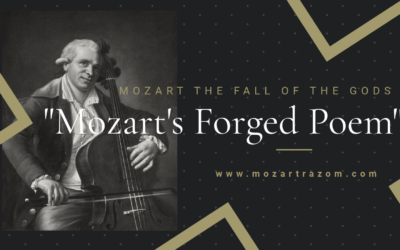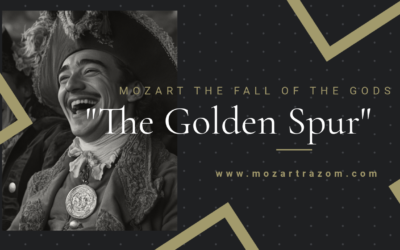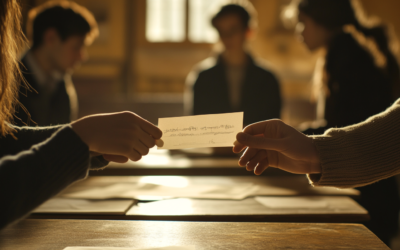New Revelations About Mozart
at the Évora Forensic Conference
At the Évora Forensic Conference, new research confirmed that both Mozart’s personal catalogue and the signatures on his violin concertos are forgeries, challenging long-held beliefs.
Mozart: The Fall of the Gods
This book offers a fresh and critical look at the life of Wolfgang Amadeus Mozart, challenging the myths that have surrounded him for centuries. We strip away the romanticised image of the “natural genius” and delve into the contradictions within Mozart’s extensive biographies. Backed by nearly 2,000 meticulously sourced citations, this work invites readers to explore a deeper, more complex understanding of Mozart. Perfect for those who wish to question the traditional narrative, this biography is a must-read for serious music lovers and historians.
"The bass clefs and signatures once thought to be Mozart’s have now been revealed as forgeries, rewriting 250 years of music history."
@MozartrazoM
Exciting Mozart-related discoveries were unveiled at the International Conference on Forensic Handwriting and Document Examination held in Évora, Portugal. In the photo, we are at the University of Évora alongside Dr. Anthony Jarvis from Darwin University in Australia and Professor Heidi Harralson, a Board Certified Forensic Document Examiner from East State Tennessee University, a renowned author in forensic document analysis for court experts.
All four of us focused on Wolfgang Amadé Mozart during our time in Évora. Besides our scientific paper on Mozart’s personal catalogue, two other groundbreaking papers were presented. The first, by Anthony Jarvis, examined the bass clefs in Mozart’s personal catalogue. Through statistical and geometric analysis, Jarvis proved that the bass clefs in the catalogue are incompatible with Mozart’s handwriting, further supporting our claim that the catalogue was not written by Mozart but is a forgery.
The second paper, presented by Professors Heidi Harralson and Martin Jarvis, scrutinised the so-called autograph signatures on the manuscripts of Mozart’s violin concertos. Their research revealed that these signatures, believed to be authentic for 250 years, are also forged.
You May Also Like
#3 Leopold Mozart’s Literary Theft
Hidden within the Mozarteum’s archives lies a poem that has long been hailed as a tribute to the young Mozart children. But behind this innocent façade is a story of deception, literary theft, and one father’s ambition to rewrite history.
#4 The Golden Spur
While often portrayed as a prestigious award, the Golden Spur (Speron d’Oro) granted to Mozart in 1770 was far from a reflection of his musical genius. In this article, we delve into the true story behind this now-forgotten honour, its loss of value, and the role of Leopold Mozart’s ambitions in securing it.
Mozart Unmasked: The Untold Story of His Italian Years
Explore the lesser-known side of Wolfgang Amadé Mozart’s early years in Italy. ‘Mozart in Italy’ unveils the complexities, controversies, and hidden truths behind his formative experiences, guided by meticulous research and rare historical documents. Delve into a story that challenges the traditional narrative and offers a fresh perspective on one of history’s most enigmatic composers.
Another Example of Borrowed Genius
The myth of Mozart’s genius continues to collapse under the weight of his reliance on others’ ideas, with Leopold orchestrating his son’s supposed early brilliance.
A Genius or a Patchwork?
The genius of Mozart had yet to bloom, despite the anecdotes passed down to us. These concertos were not the work of a prodigy, but a collaborative effort between father and son, built on the music of others.
Myth, Reality, and the Hand of Martini
Mozart handed over Martini’s Antiphon, not his own, avoiding what could have been an embarrassing failure. The young prodigy had a lot to learn, and much of what followed was myth-making at its finest.







